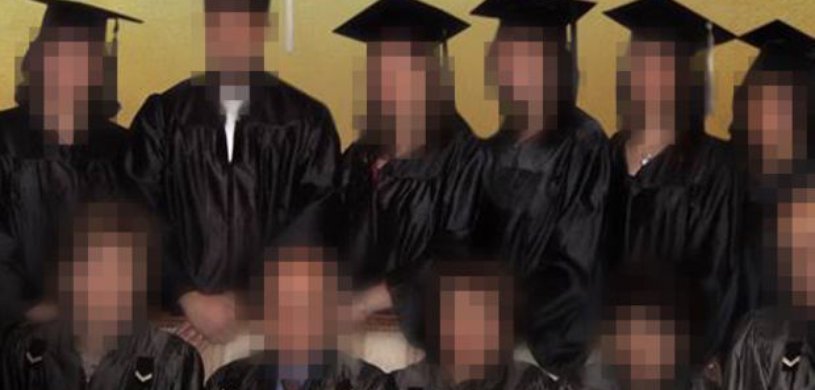
BIHE students graduate in Iran. The university is forced to operate underground
Education is usually seen as the key to better societies and better futures. But it can also be used as a weapon of discrimination, as the legacy of South Africa’s apartheid era has shown. And in Iran today, the government withholds education for the same effect: to marginalize, penalize and repress the country’s Baha’i people.
“Education is a double edged sword that can liberate or be used to enslave,” said Professor Somadoda Fikeni, a policy and political analyst at the University of South Africa, speaking at an event marking the launch of Not A Crime’s new project in Johannesburg on June 1.
The project raises awareness of the educational apartheid against the Baha’is of Iran, the country’s largest religious minority. Since the 1979 Islamic Revolution, the Iranian government has blocked Baha’i’s from pursuing higher education. As part of the initiative, Not A Crime studies the cost of discrimination in other countries where groups of people have faced discrimination. South Africa, which was ruled by the apartheid regime from 1948 to 1994, was the natural first choice for the study.
The panel discussion, which included experts in economics, law and sociology and IranWire founder Maziar Bahari via Skype, drew parallels between systematic and government-sanctioned education discrimination during apartheid and Iran today. “Iran cut links with South Africa during apartheid, but they continued to implement their own human rights abuses,” said Khwezi Cenenda, who chaired the debate.
The panel also featured Tahirih Matthee, Director of the Baha’i Office of Public Affairs in Johannesburg, Dr Iraj Abedian, founder and CEO of Pan-African Capital Holdings, and Professor Salim Nakhjavani from the University of Wits in the city, and took place at the School of Law at the university.
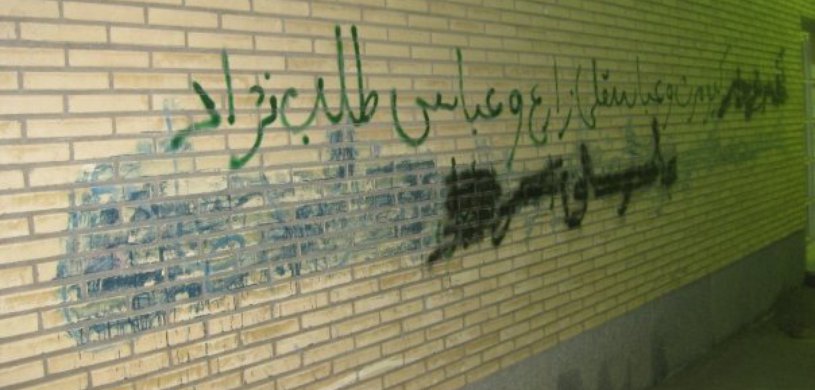
Anti-Baha’i graffiti in Iran
So what happened to education in South Africa under apartheid, and what is its legacy today? The South African government, led by a number of leaders including Hendrik Verwoerd, denied South Africa’s blacks and “coloreds” access to equal education for close to 50 years. The fallout from that cruel education segregation is one of the main causes of South Africa’s wealth disparity and high unemployment today. “Just over 50 percent of our population is unemployed,” said Iraj Abedian, a South African-based Iranian working in economics and business. “Our economy is not doing well, we have a shortage of skills. This is not a society at ease with itself. If a society is not at ease with itself it cannot unlock its full potential.”
The Baha’is in Iran are subjected to discrimination on religious grounds rather than race. The discriminatory policies are rooted in a 1991 memorandum signed by Iran’s then and current supreme leader, Ayatollah Ali Khamenei, which said that the progress of the Baha’is should be “blocked” by denying them work opportunities and higher education.
“What are the Bahai’s really doing that makes the government so angry?” asked Tahirih Matthee. It’s a question, she said, that you would never dare ask of South African blacks today, so the same can be assumed for Iran’s Baha’is. “Iran has the potential to thrive if they give equal opportunities to all their citizens,” she said.
In response to the ban on higher education, Baha’is created the Baha’i Institute for Higher Education (BIHE), an underground university, in 1987. Thousands of Baha’is currently study through the BIHE system, and academic institutions around the world recognize its qualifications. “The more I studied BIHE the more I admired the resilience of young Baha’is who were fighting to study,” said Maziar Bahari, speaking about the inspiration behind the project. “So I decided to make a film about the Baha’is in Iran. The Baha’is have flourished because of education and peaceful resistance. As a result, everyone should know about the BIHE and this successful peaceful resistance movement.” Bahari’s film, To Light a Candle, was released in 2014.
Not A Crime also focuses on the history of the civil rights movement in the United States, and a series of murals have gone up in streets in Harlem, New York, Atlanta, Georgia and Nashville, Tennessee — where divisive, discriminatory laws wreaked damage on communities for decades. Speaking about the murals, Bahari said Not A Crime looked to the experience of black Americans in order to “explore the real cost of discrimination, as a warning to the Iranian government.”
The event in Johannesburg also featured three short films produced by Not A Crime, interviews with South Africans who studied under the Bantu education system, which was implemented by the architect of apartheid, Hendrik Verwoerd, as a secondary form of education tasked with creating second class jobs for black citizens. “There is no place for the Bantu in a European community above certain forms of labor,” said Somadoda Fikeni.
African-Americans are still dealing with the aftermath of brutal discrimination, and South Africans still deal with the legacies of apartheid today. In South Africa, overcoming that past and working for equal education is now a national mandate. The stories of people who lived through this time serve as an inspiration for the Baha’is in Iran – and, as Bahari describes, specifically as a warning to the Iranian government of the consequences of denying basic rights to 300,000 Baha’i Iranian citizens.
Speaking at the Johannesburg event, Abedian also issued a warning against “institutionalized, state-driven and politically motivated” denial of education. “The discrimination is based not on racial grounds but religious grounds; the essence is identical,” he said.
Perhaps most importantly, the discussion in South Africa ended on a message of hope. “The denial of access to knowledge is in itself one of the most grievous acts of oppression,” said Salim Nakhjavani. He asked the audience what they thought Iran could learn from the South African experience, and speakers discussed how peaceful resistance — a key tenet of the Baha’i faith — could bring about change in Iran.
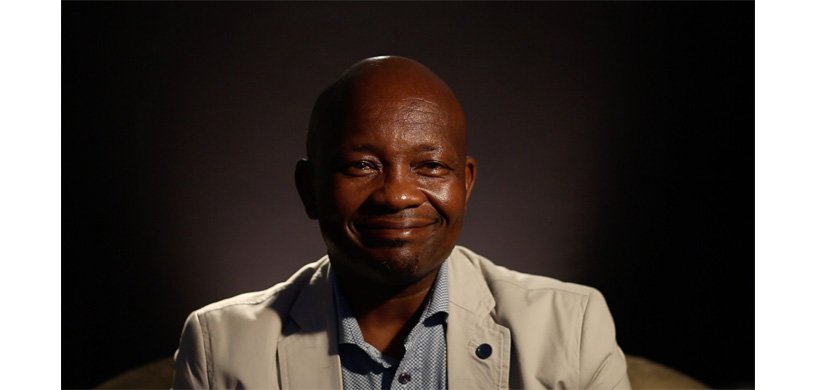
In the first video, Peter Mputle describes what it was like to be denied education under South Africa’s apartheid system
Watch the Cost of Discrimination videos:

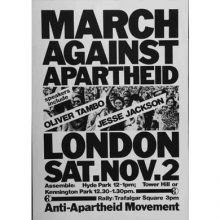
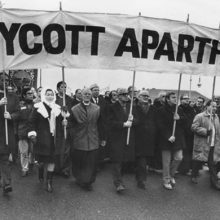

Leave a Reply